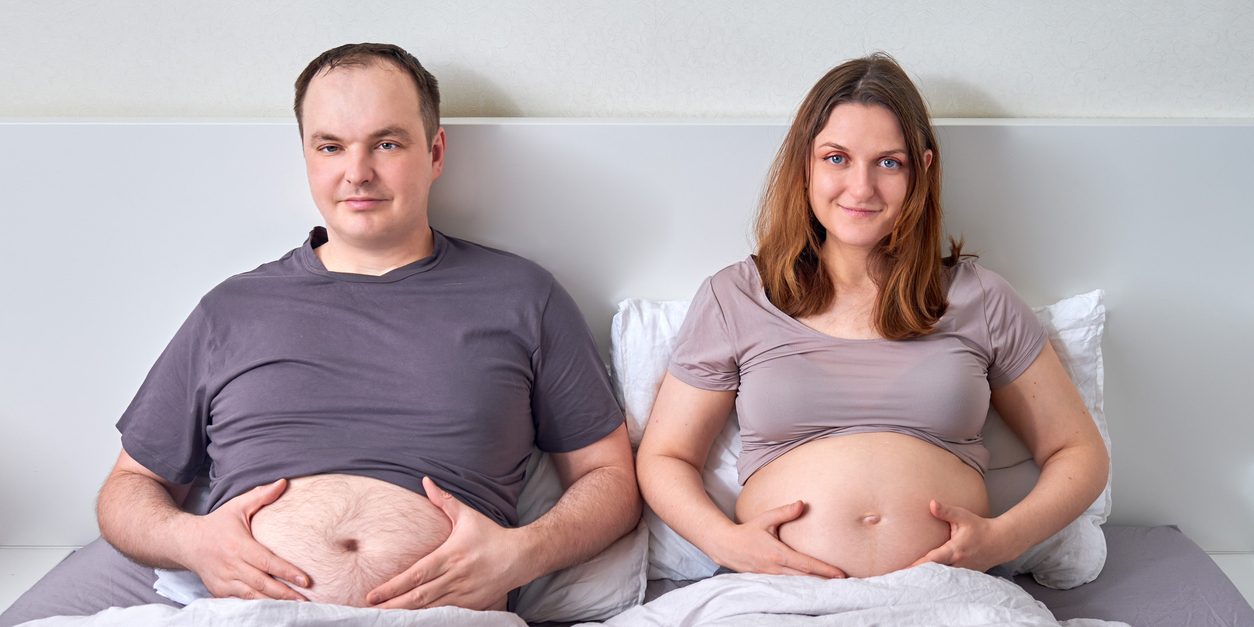
Expectant fathers may also need some help with their bellies
New research amongst expectant fathers in Western Australia shows that despite being a younger group, they had similar rates of overweight and obesity to the national average but reported fewer unhealthy lifestyle behaviours like smoking and alcohol consumption.
As obesity levels generally increase with age, and the fact that a father’s weight can influence the future health of their children, researchers suggest that pregnancy could present an opportunity to improve outcomes for the whole family.
Lead author Professor Simone Pettigrew, Program Director, Health Promotion and Behaviour Change at The George Institute for Global Health, said that while pregnant women are likely to be more receptive to behavioural change for the wellbeing of their babies, very little is known about the lifestyle behaviours of fathers during this time.
“We saw that there was room for improvement in the health of expectant fathers in our study, particularly when it came to their weight,” she said.
“Pregnancy could present an important window of opportunity for engaging with fathers for their own and their families’ benefit.”
Between October 2017 and March 2020, 502 participants who were part of a community-based, birth related study based at the Joondalup Health Campus in Western Australia, completed a survey and physical assessment.
Almost two-thirds of the sample (60 percent) was aged 26–35 years, with an average age of 34 years. Three-quarters (76 percent) were overweight or obese and almost two thirds (62 percent) had a waist measurement of 94cm or more – an indicator of fat stored deep inside the belly, around the organs.
However, their self-reported lifestyle behaviours were good compared to national figures:
- Thirteen per cent were current smokers (versus 17 per cent of males aged 18–59 years nationally);
- 12 per cent reported consuming an average of more than two drinks per day (24 per cent
nationally);
- 62 per cent reported engaging in at least 150 minutes of moderate to vigorous activity per week
(50 per cent nationally), and
- 29 per cent engaged in strength training at least twice per week (versus 25 per cent nationally).
“We know that there is a relationship between a father’s weight and children’s health outcomes such as higher weight, type 1 diabetes and impaired brain development, so efforts to improve paternal health can have long term benefits,” Professor Pettigrew added.
While the study did not assess food intake in this group, researchers speculated that it could be an important influence on their weight, given that the group generally reported better than average levels of activity.
“During a time when there is a big focus on health of expectant mothers, there is an opportunity to also encourage their partners to adopt a healthier lifestyle, making it a shared responsibility,” added Professor Pettigrew.
“This could be cost-effectively incorporated as part of existing maternal health checks,” she added.
“The results of this study indicate that weight management may be an especially important health issue to address at this time.”







